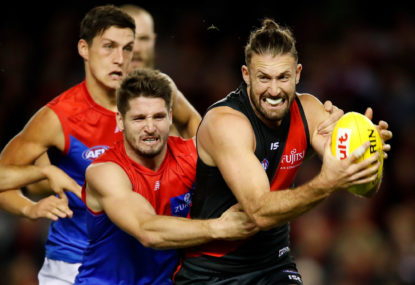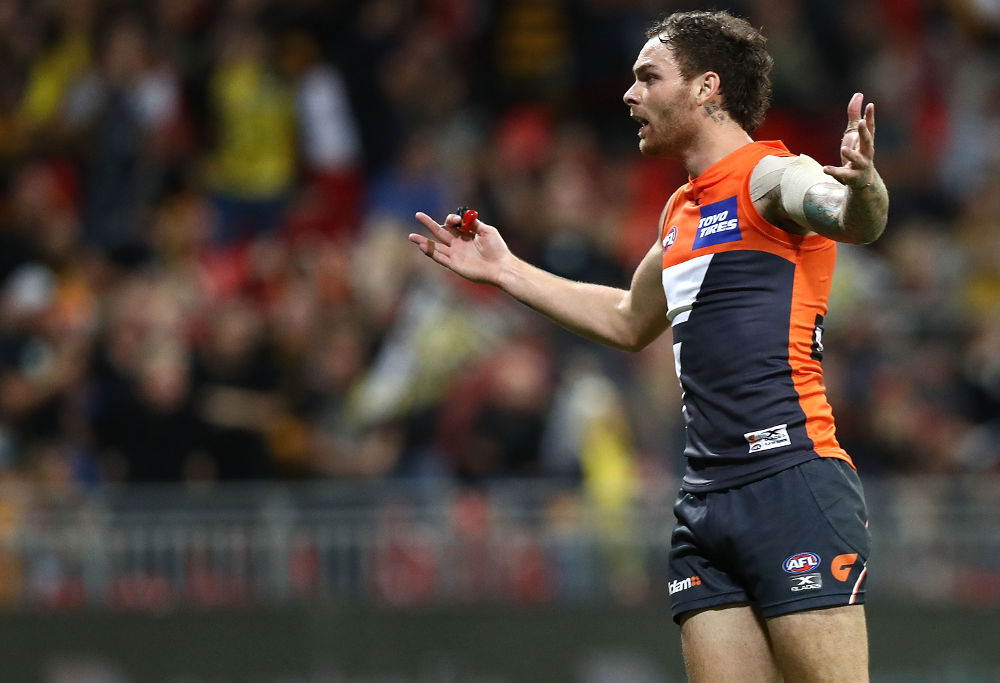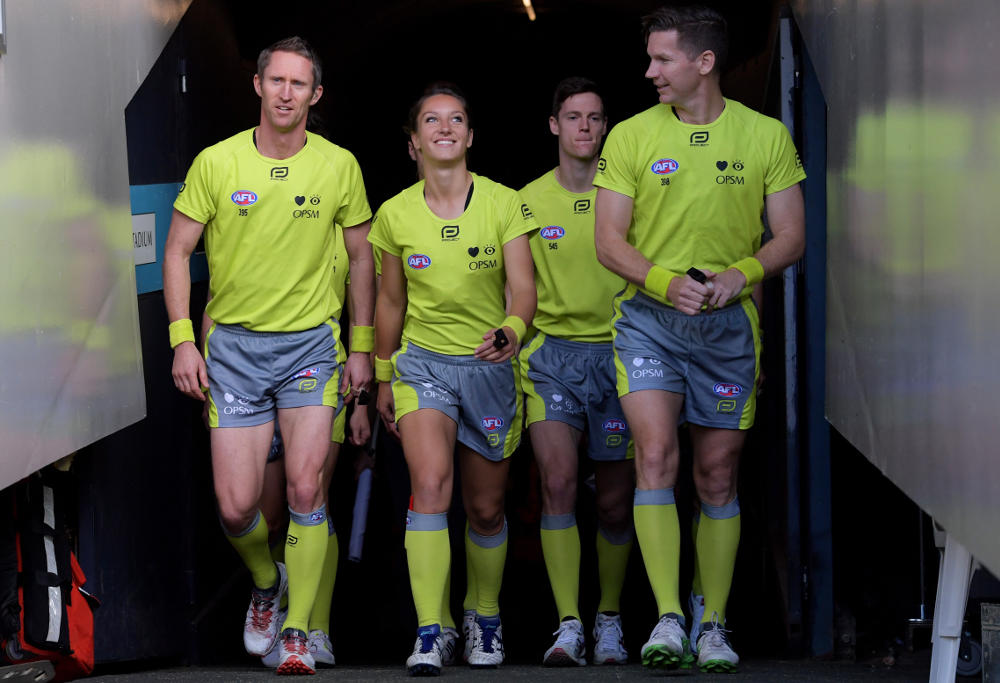The data says Brisbane are a flag contender - but the eye test tells a completely different story
There’s a slight disconnect between the data, the record and the eye test for the Brisbane Lions to start season 2024. This week, Champion…

Free kicks would help disperse congestion. It’s that simple.
Instead of scoffing, think this through to its logical conclusion: a player picks up the ball and is tackled but is not pinged for illegal disposal or dropping the ball, therefore the ball lands imprecisely. Players then congregate to try to win it. Over and over this happens, the rolling scrum following the ball as players try to win it and break free.
Pay a free kick. The scrum disperses.
Too many fans panic at the suggestion, as if the umpires will either have to pay soft free kicks or invent free kicks. Firstly, let’s remember the game’s often being stopped anyway because an umpire’s coming in to ball it up.
Secondly, the throws are there. The dropping the balls are there. The holding the ball rule I grew up with through the 1980s has become a tattered, pathetic flag that’s too often – and too merrily – ignored. The rule should be simple: if a player is tackled and the ball is not disposed of legally by hand or foot, then it’s a free kick.
Collingwood coach Nathan Buckley also suggested this week that ‘prior opportunity’ should be eliminated. Geelong coach Chris Scott disagreed, saying it would result in “500 free kicks a game”. Again, that’s the panic. Buckley’s right: why should a lack of prior opportunity indemnify a player from disposing of it legally? The drop again creates imprecise disposal, inviting packs to try to win the ball. Pay the free and clear the space.

(Ryan Pierse/Getty Images)
It’s unfortunate that the player making the play could be penalised, but let’s look at the way the game has schismed due to other rule changes. The head was deemed sacrosanct. How often did players then start ducking or dropping knees? Now there’s a rule to address the schism: players ducking will not be paid frees.
What about allowing players to kick out immediately from a behind rather than, as they used to, having to wait for the goal umpire to finish waving their flags? The result is that Hawthorn purposely rushed behinds in the 2008 grand final as a way of resetting play then kicking out and beating their opponents on the counter. The AFL later introduced a penalty for the deliberate rush.
Start pinging players for illegal disposal whether they’ve had prior opportunity or not, and they’re going to focus on disposing correctly. There’s no imperative to do so now because they so often get away with this. Watch teams who’ve become masters of the flick throw – and why? Because they know can get away with it. Why wouldn’t they keep doing it?
Paying frees will also arguably encourage positional play. We have a game of two sides of 18 onballers following the ball back and forth because we have this imprecise disposal inviting them in. Pay these frees and the first thing they’ll learn is to spread hard to present options. This will evolve to them realising it’s better for some of them to hang back to present an option.

(AAP Image/Tracey Nearmy)
Consistency should be the mandate in umpiring. I’m sick of watching countless good tackles during games go unrewarded. You can claim the umpires haven’t sighted the incident only so many times. Watch their positioning – often they can see exactly what’s happening, but that AFL imperative is in their heads: keep the game moving.
These clichés that go around about umpiring baffle me – things like, ‘It would take a brave umpire to pay that’ or, ‘They’re letting the game go’. So an umpire might pay a free on the wing but not the same free in front of the goal? Geography or repercussion – rewarding a player with a scoring shot – should have no bearing on when or where free kicks are paid. Nor should umpires decide that free kicks they might have paid earlier are no longer there later in the game.
There’s also the famous, ‘You have to pay (or not pay) that for the theatre’. So a free will or won’t be paid because the play is dramatic and you don’t want to spoil the moment?
These points delve into imbecilic. A free should be a free at all times, whether it’s in the first second of the game or the last second of the game, whether it’s on the wing or at full forward, but instead we allow these qualifiers and accept them as part of the game – we allow rules to morph depending on some fluid context that can change from game to game, from moment to moment.
Rules are and should be absolute, yet we treat them as suggestions.